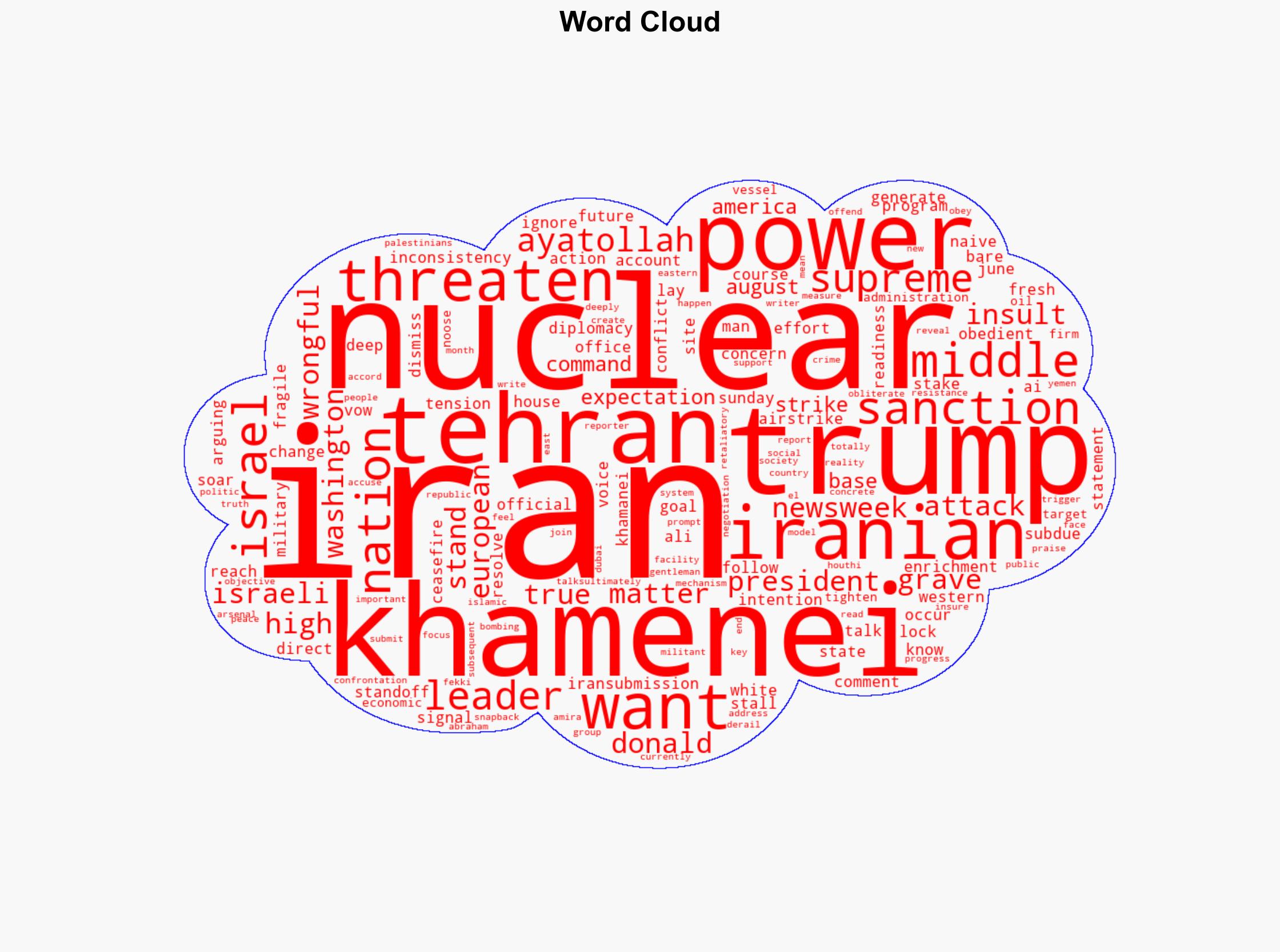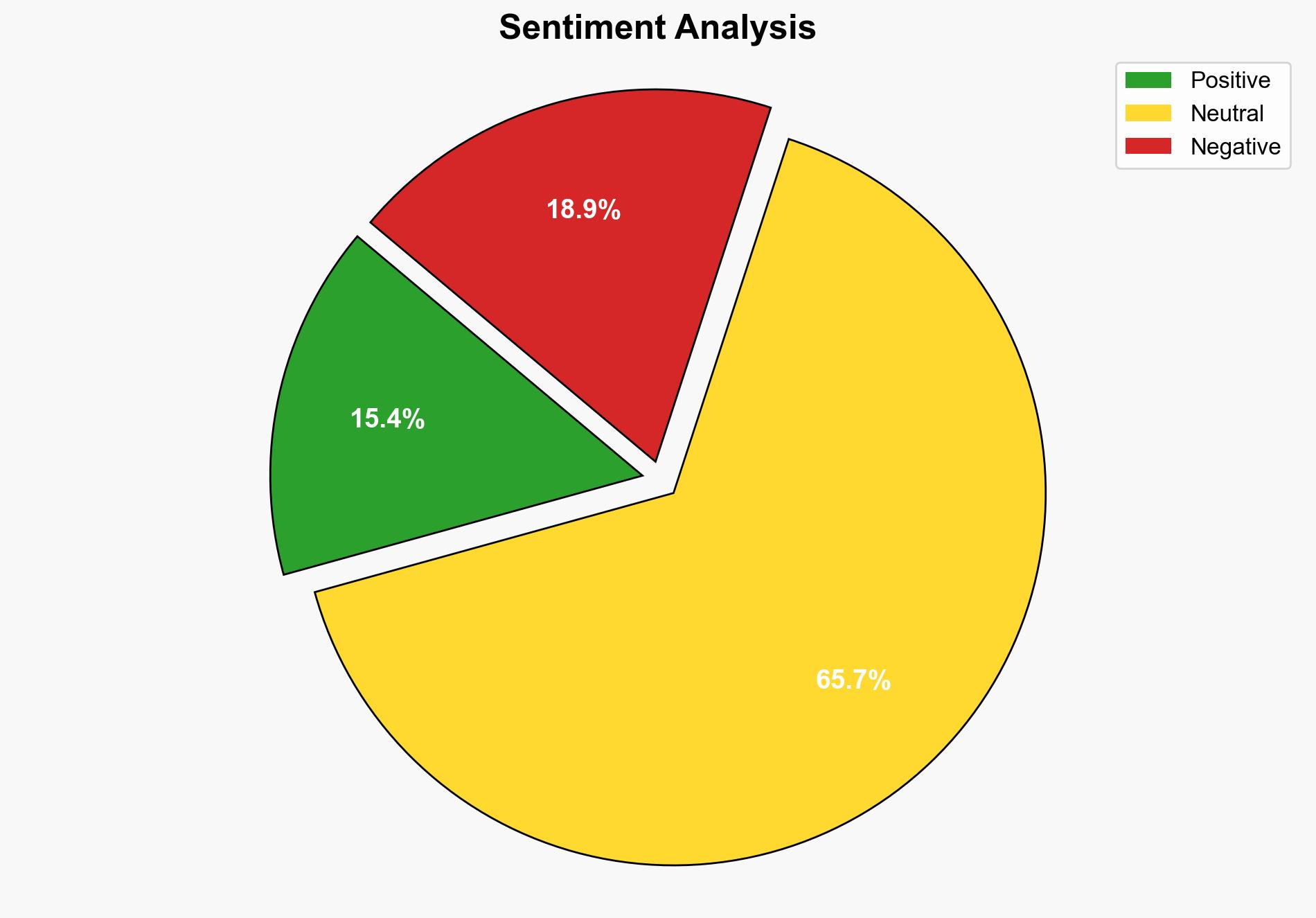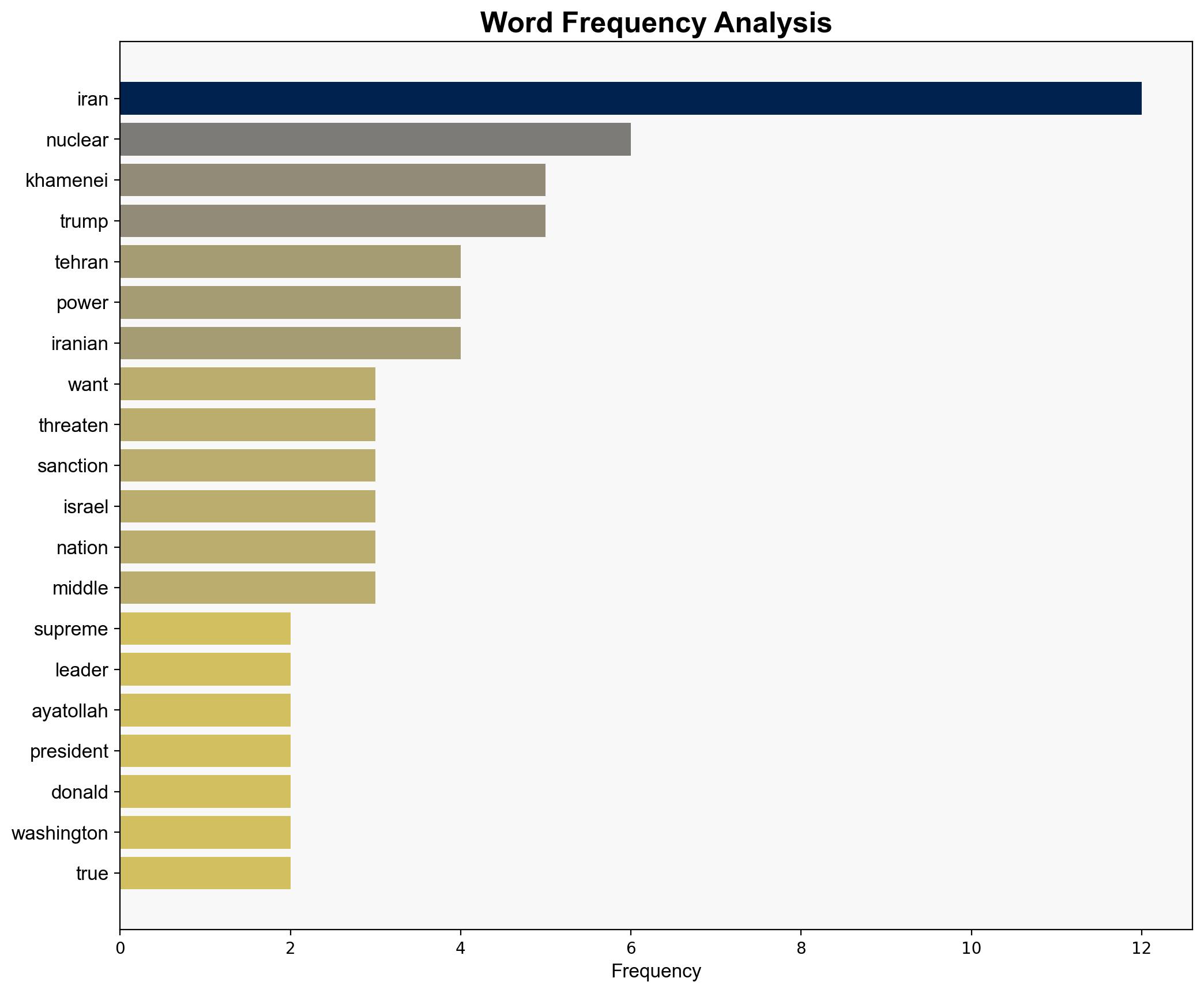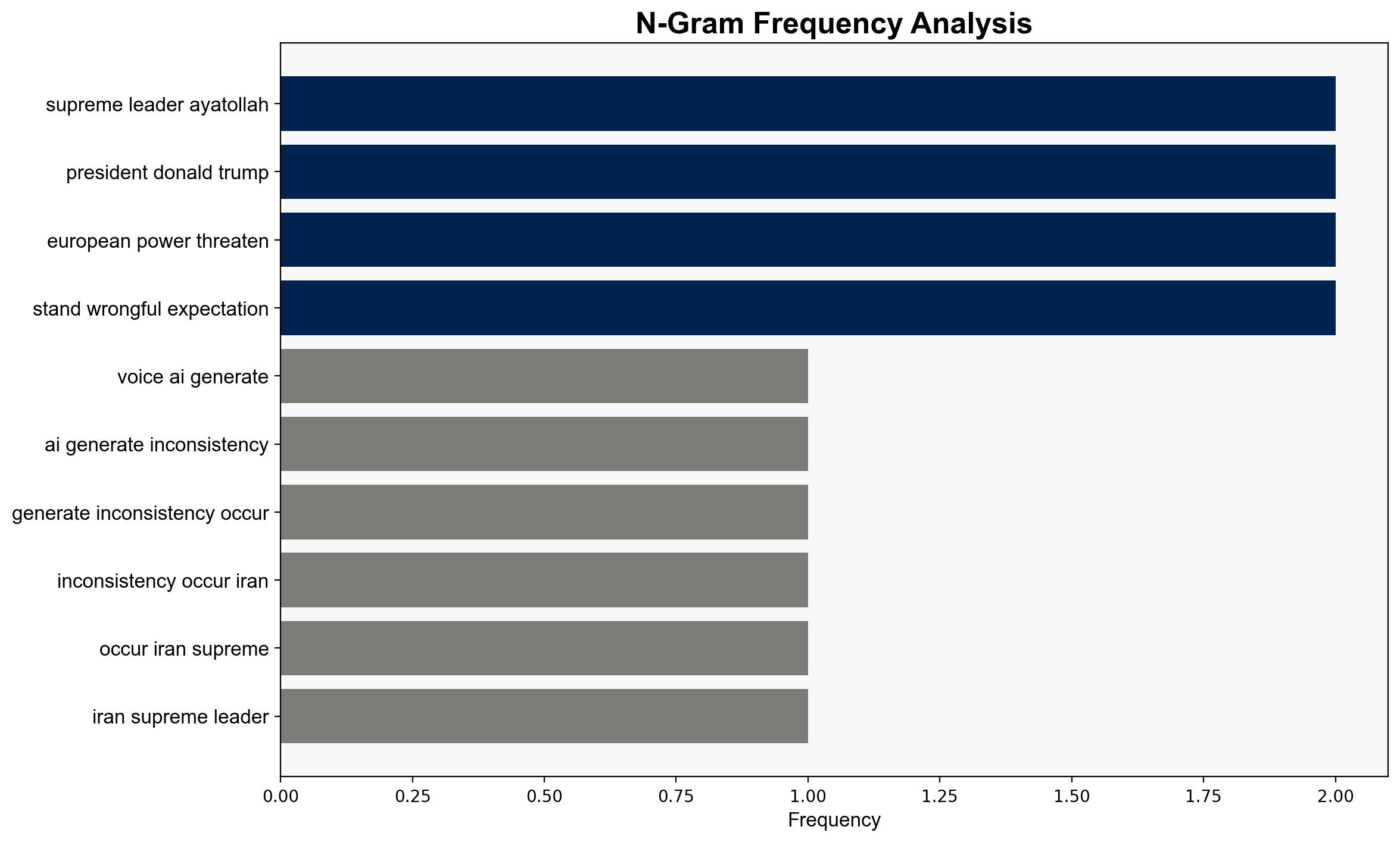Iran’s Supreme Leader Speaks Out on Donald Trump – Newsweek
Published on: 2025-08-25
Intelligence Report: Iran’s Supreme Leader Speaks Out on Donald Trump – Newsweek
1. BLUF (Bottom Line Up Front)
The strategic judgment indicates a high likelihood that Iran is positioning itself to resist U.S. pressures while simultaneously leveraging European powers to avoid further sanctions. The most supported hypothesis suggests Iran is using public rhetoric to consolidate internal support and signal defiance externally. Recommended action includes diplomatic engagement with European allies to maintain a unified front on sanctions while preparing for potential Iranian retaliatory actions. Confidence level: Moderate.
2. Competing Hypotheses
Hypothesis 1: Iran’s Supreme Leader is using strong rhetoric to consolidate domestic support and signal defiance against U.S. pressures, aiming to strengthen Iran’s negotiating position with European powers.
Hypothesis 2: The statements are primarily aimed at provoking a reaction from the U.S. and its allies, potentially to justify escalatory actions or to distract from internal challenges.
Using the Analysis of Competing Hypotheses (ACH) 2.0, Hypothesis 1 is better supported due to the consistent pattern of Iran’s strategic communications aligning with its historical approach to international negotiations and internal consolidation.
3. Key Assumptions and Red Flags
Assumptions include the belief that Iran’s leadership is primarily motivated by regime survival and geopolitical positioning. A red flag is the potential underestimation of internal dissent or economic pressures within Iran. There is also a risk of cognitive bias in interpreting Iran’s actions as purely defensive rather than opportunistic.
4. Implications and Strategic Risks
The ongoing tension could escalate into military confrontations, particularly if Iran perceives increased threats from Israel or the U.S. Economic sanctions may further destabilize Iran’s economy, potentially leading to internal unrest. Cybersecurity threats could increase as Iran may resort to asymmetric tactics. Geopolitically, a failure to engage Iran diplomatically could lead to a breakdown in nuclear negotiations, increasing regional instability.
5. Recommendations and Outlook
- Engage with European allies to maintain a unified approach on sanctions and diplomatic efforts.
- Enhance intelligence monitoring of Iran’s military and cyber capabilities to anticipate potential retaliatory actions.
- Scenario Projections:
- Best Case: Diplomatic engagement leads to a de-escalation and resumption of nuclear talks.
- Worst Case: Military confrontation occurs, leading to regional instability.
- Most Likely: Continued stalemate with periodic escalations in rhetoric and sanctions.
6. Key Individuals and Entities
– Ayatollah Ali Khamenei
– Donald Trump
– Amira El Fekki
7. Thematic Tags
national security threats, cybersecurity, counter-terrorism, regional focus





